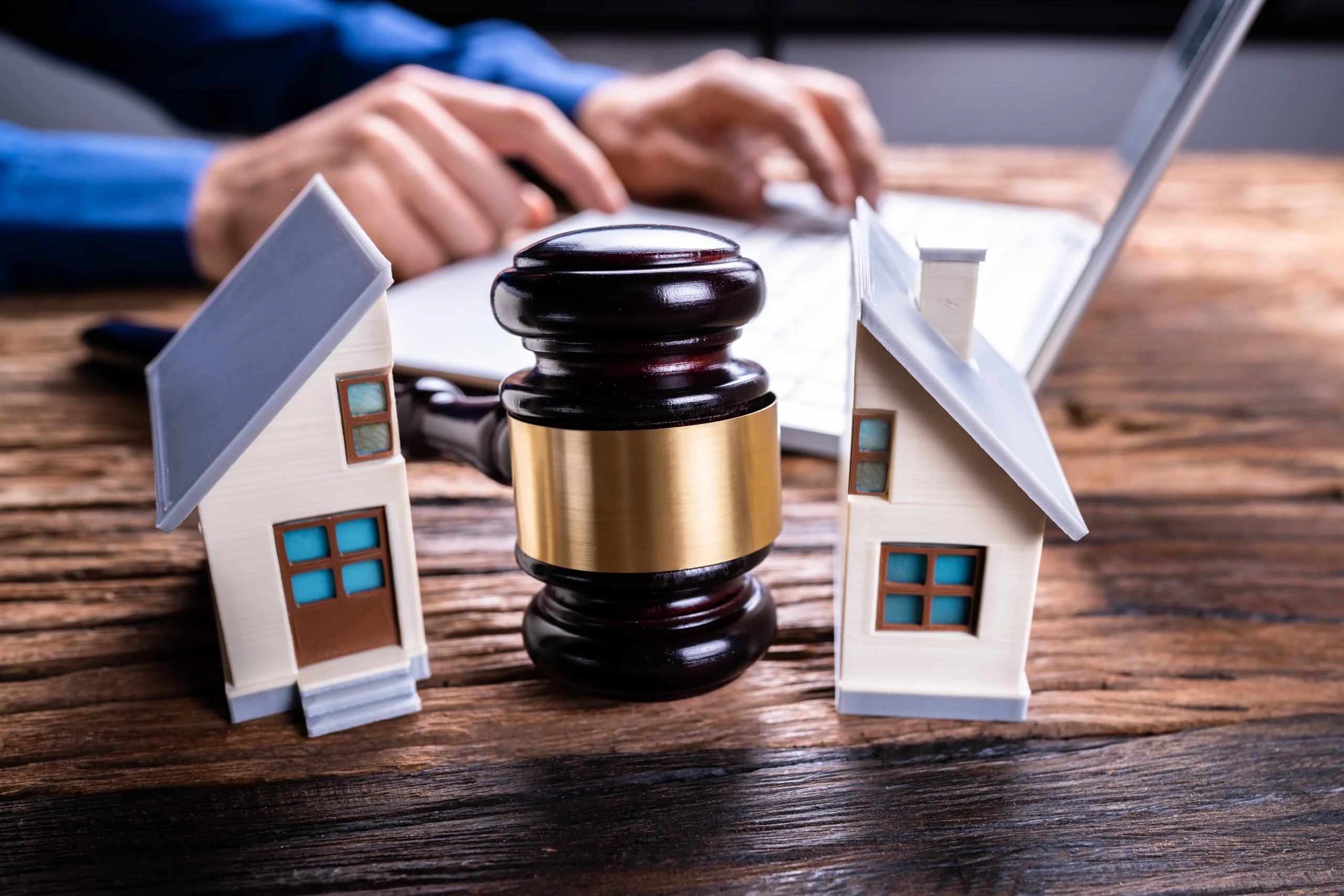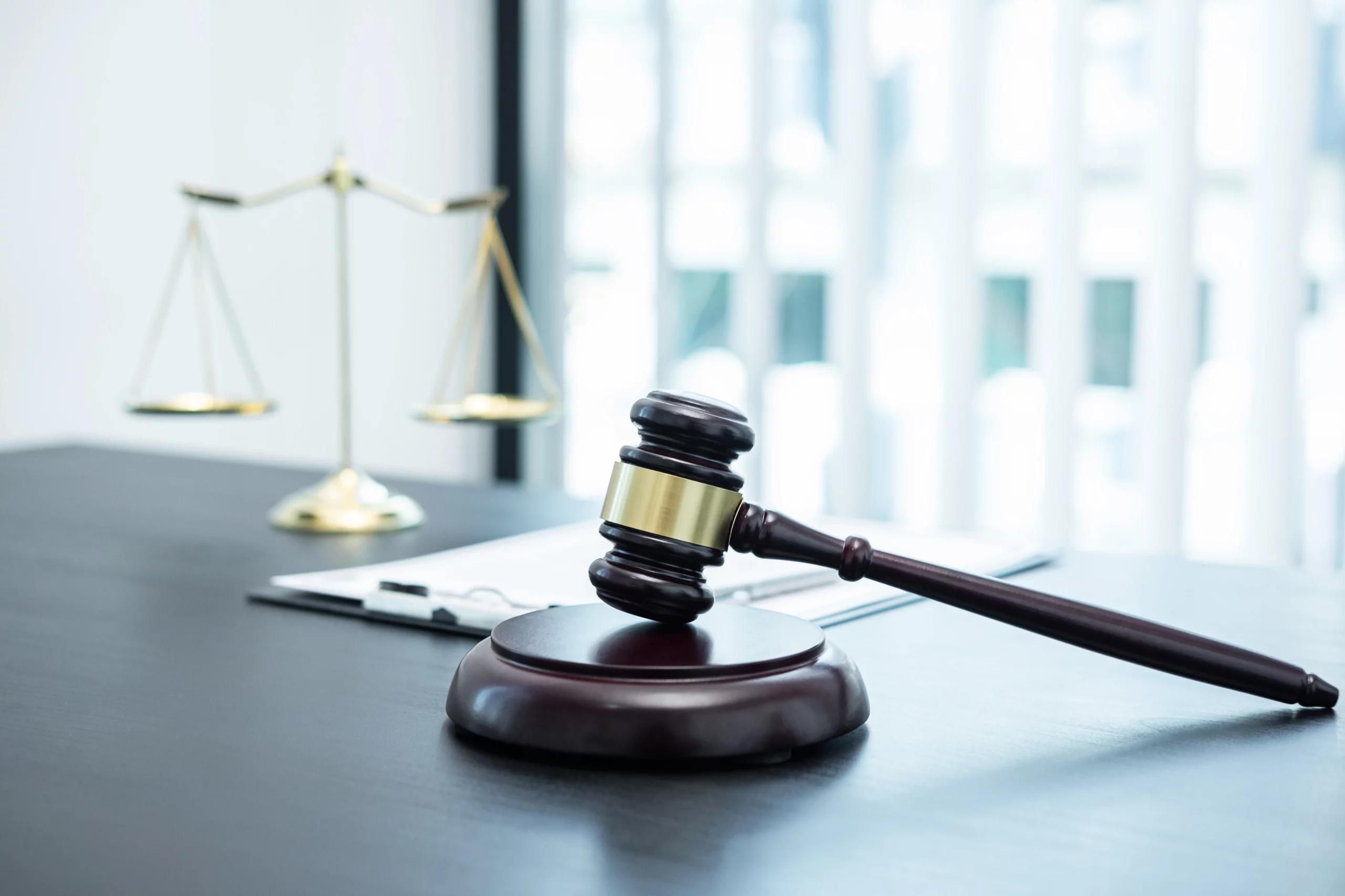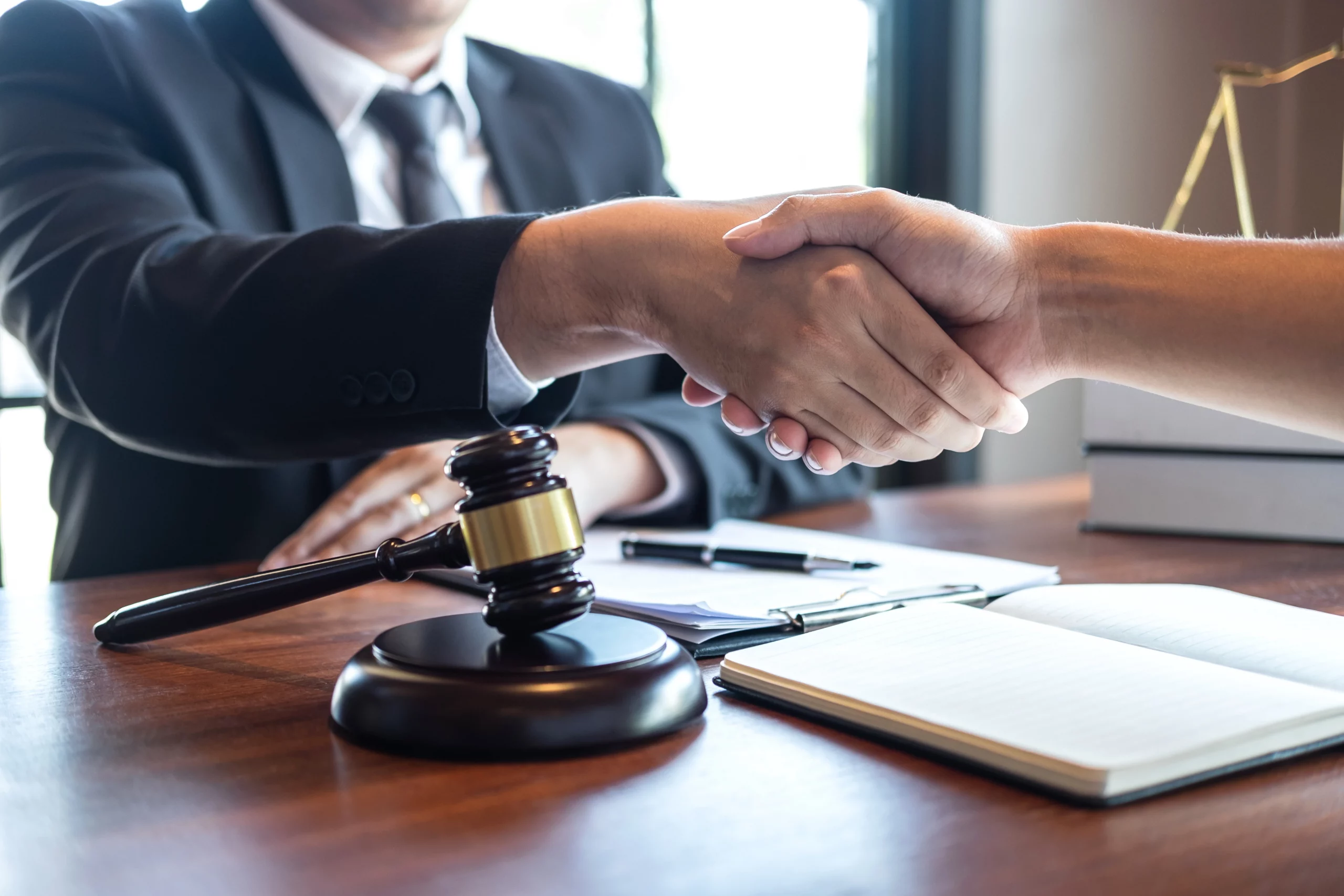Ice & Snow Accident Lawyers | Slip, Trip, and Falls
The Best Premises Liability Accident Law Firm
Premises Liability > Accidents > Ice & Snow
In the winter, people often trip and fall because of the snow and ice, and this is especially true in Colorado Springs, where the snow can pile up in unexpected places. These tumbles rarely cause serious injury and are usually more amusing than painful. But not everyone had a good time after slipping on an icy sidewalk or parking lot.
The consequences of a fall on snow and ice can be devastating, including the need for expensive medical care, missed employment, and even lifelong disability. If the slip and fall resulted from the owner’s carelessness, they might be held accountable for any damages.
Warrior Personal Injury Lawyers is a group of competent Colorado Springs, CO, personal injury lawyers. Represent people hurt in slip-and-fall accidents on snow and ice at private residences, commercial properties, public parking lots, and workplaces.
Contact us at 719-300-1100 to set up a free consultation to discuss a claim to collect compensation for your damages if you or a loved one was harmed in a slip and fall accident in Colorado caused by a company’s failure to remove snow or ice.
Free Consultation
NO FEE UNLESS WE WIN
Slips And Falls Result In Serious Injuries
Many people underestimate how dangerous it is to slip and fall on snow or ice. The average person will take about 30,000 tumbles throughout their lives, but falling on snow or ice can cause serious injury.
A slip and fall on snow or ice and impact with a hard surface can result in severe soft tissue damage, bone fractures, brain trauma, or even death.
Falling has terrible repercussions, as evidenced by the almost 26,000 fatalities that year alone. Herniated discs, broken bones, and concussions are some of the more typical results of slips and falls on icy surfaces.
- Bone breaks, such as those in the arm, wrist, or hand
- Injuries to the back and knees
- Broken legs, pelvis, or hips
- Disc herniations and other damage to the spinal cord
- To name a few:
- Whiplash
- Mild traumatic brain damage
In 2019, over nine million people sought medical attention after suffering injuries from falls. Many of these injuries resulted from slips and falling on icy surfaces. Everyone who was hurt and had no way to pay their medical expenses had to work multiple jobs or take on significant debt as they tried to get better.
A property owner’s failure to remove snow and ice or hire a snow and ice removal business leaves their tenants and visitors vulnerable to harm. However, victims have legal redress when this occurs. In a premises liability case, the property owner may have to pay damages to a victim who was hurt after slipping and falling on the property.
Injuries From Snow And Ice Falls On Colorado Property And The Owners’ Liability
Falls on snow and ice are not as clearly defined as other property liability issues in Colorado. Icy sidewalks or parking lots do not automatically make the property owner responsible for any injuries sustained by visitors.
No matter how bad the injury or slick the floor was, they will not be held accountable in most cases. Injuries sustained on a property due to “natural accumulation” of snow and ice are considered the property owner’s responsibility under Colorado law. However, it is not their job to clear the walkways of snow and ice.
It is possible to seek financial compensation from the property owner in the event of injuries sustained from slipping and falling on icy surfaces.
The Snow Has Been Piling Up For No Apparent Reason.
Property owners must ensure that no “unnatural accumulation” of melting snow or ice has formed on sidewalks to prevent slip and fall accidents. Snowfall and blizzards also cause natural accumulations of snow.
Lease Contract
Some rental contracts require that the landlord remove snow and ice from the premises throughout the winter. If property owners don’t hire a snow removal service after a snowstorm, they could be held liable for any injuries or damages on the premises.
The Existence Of Black Ice
Black ice can form on roadways and parking lots in extremely cold weather and snowstorms, creating hazardous driving and parking conditions. Black ice can form on the pavement during cold winter months and snowstorms. In Colorado, black ice forms when precipitation freezes on the ground, creating hazardous driving conditions if the ice isn’t cleared away.
People who have suffered serious injuries after slipping and falling on snow or ice on someone else’s property, such as a parking lot or apartment complex, may have legal options for resolving the situation and recovering financial compensation. A personal injury attorney can advocate on their behalf and help them get the compensation they deserve for their injuries.
Accidental Injuries Sustained On Snow Or Ice.
You probably have many concerns about injury claims involving snow and ice, and our Colorado Springs, Colorado, slip & fall injury attorneys are here to help. Several of your questions on personal injury lawyers have been answered below.
Get in touch with us at (toll-free) 719-300-1100 today so we can set up a free consultation to address all of your concerns. The trial attorneys in Colorado Springs, Colorado, are here to assist you.
If You Slip And Fall On Ice, What Should You Do?
How long it takes you to recover physically and financially after slipping on ice or snow in Colorado Springs depends on the steps you take after the accident.
Find a doctor immediately, no matter how small you think your injuries are. A doctor can only determine the severity of your health problem with access to cutting-edge diagnostic equipment.
Contact the owner of the company or property and explain what transpired.
Collect the names, addresses, and phone numbers of any potential witnesses.
Take pictures of the site and label any potential dangers that may have contributed to your fall.
Keep any articles of clothes or footwear that may prove useful in settling your case or presenting your case at trial.
One Option Is To Get Legal Representation To Manage Your Injury Case.
Can a person file a lawsuit if they suffer an injury from a fall on icy ground?
Have you recently fallen while visiting a Colorado Springs, CO home, workplace, or business that wasn’t your own? To pursue monetary damages through civil action is probably within your rights.
If a person slips and falls on ice or snow that is not naturally occurring, the property owner may be held liable under the law.
If you want to sue a property owner for failing to remove snow, ice, or other potentially dangerous liquids, you’ll have to show that they breached their duty of care to maintain a safe environment for people. You’ll need to prove that you were hurt and that their carelessness was to blame.
If your fall was caused by natural snow accumulation on the sidewalk, parking lot, or walkway, you might not have a case. In the hours following an ice storm, the property owner may not be responsible for any natural deposit of ice.
A Slip And Fall Accident Is Best Described By What Happened Next.
According to data compiled by the National Safety Council, about 9 million people visit hospital emergency rooms annually due to injuries sustained in slips, trips, and falls. The property owner’s failure to remove litter, snow, or ice from walkways and parking lots within a reasonable amount of time is to blame for these incidents that occurred in the open air.
Slippery floors, congested walkways, damaged stairs, and unknown hazards are common causes of injuries from slipping, tripping, and falling inside.
How Much Do Accidents Involving A Slip And Fall Usually Cost?
According to the CDC (Centers for Disease Control and Prevention), each slip and fall accident results in over $30,000 in hospital bills.
There are, however, additional expenses that come with injuries sustained from falls.
Damages from an accident can include:
- Work absences while recuperating
- Future income lost owing to a temporary or permanent disability;
- Future expenses incurred due to continued rehabilitation, treatments, and physical/occupational therapy.
- Intangible losses include mental agony, sadness, and grief
Tell Me How Long It Takes To Finalize A Fall, Trip, Or Slip.
When determining how long it will take to settle a slip, trip, and fall case, it is important to consider the specifics of the incident and the severity of the victim’s injuries. The victim or their counsel must establish liability and all persons accountable for damages.
The next step is for the attorney to assess the situation and calculate a monetary value using factors such as hospitalization and medical expenses, lost wages (past and future), temporary and permanent impairment, physical discomfort, emotional distress, and other similar factors.
Do I Have Legal Remedies If I Suffer A Fall On Ice And Have To Sue The City?
If maintenance workers in a city or county were careless and caused someone to fall on an unsafe sidewalk, alley, road, or side street, the city or county could be held financially responsible.
To claim that the city was careless in maintaining its streets and sidewalks because you were injured in a fall is to make an overly simplistic argument.
Slips and trips frequently happen on city streets and sidewalks because of their poor condition. Nonetheless, the city is not accountable for clearing the snow and ice off the sidewalk in front of a private residence or business.
Hiring A Colorado Accident Lawyer: Making A Landlord Pay For Your Slip And Fall On Snow Or Ice
An experienced Colorado premises liability injury attorney should be consulted by anyone who suffers serious injuries after slipping and falling on snow and ice. They believe it was caused by human negligence. The victim may be able to recover compensation for their suffering by filing a claim for personal injury.
The injured party has the burden of proving that the property owner’s lack of maintenance led to the victim’s injuries. Most property owners have commercial or homeowner’s insurance that will cover the costs associated with injuries sustained on their property due to ice, including medical bills, lost wages, hospitalization fees, pain, suffering, and mental anguish.
Clients who have slipped and been injured on snow or ice at a friend’s or business’s property can turn to the slip and fall lawyers at Warrior Personal Injury Lawyers. We encourage you to chat with a Colorado Springs attorney with experience litigating these matters for free before speaking with your insurance provider about your accident.
Has a slip and fall at work caused you or a loved one harm?
If you’ve been hurt on the job, we can help you file for workers’ comp benefits to cover medical bills and lost wages. Please call our office at 719-300-1100 or write to us via the contact form below to arrange a free initial appointment to discuss your potential legal options.
Our attorneys for premises liability maintain a strict policy of client confidentiality. Don’t leave our injury law firm a voicemail, email, or text message containing confidential information.
How To File A Successful Personal Injury Claim After A Slip And Fall On Ice Or Snow
If you were hurt after slipping and falling on ice or snow, you might be eligible to file a claim against the negligent property owner. Find out what you need to do to get the money you’re owed.
Cold, snow, and ice are common in the United States winter months. Whenever there is snow and ice, it is important to take extra precautions to avoid slips and falls.
More than 80,000 people get serious injuries from falls each year, including concussions, shattered hips, and skull fractures, all of which require hospitalization.
Damage from falls is especially dangerous for the elderly. ¹
There should be no reasonable compromise on the property security of a business or a homeowner. Severe injuries sustained by falling on snowy or icy sidewalks warrant financial compensation for medical expenses, time off work, and mental anguish.
Slipping and falling on ice, slush, and snow tracked indoors can cause dangerously slippery flooring and serious injuries. The proprietors of buildings should provide wet floor signs and absorbent mats at entrances.
Slipping On Ice: Who’s Responsible For Medical Bills?
The law requires homeowners to eliminate any potential dangers on their property. Clearing snow and ice from sidewalks, driveways, parking lots, and other shared spaces is part of this responsibility.
Slipping and falling on ice or snow can result in serious and even fatal injuries. Traumatic brain injuries, spinal cord injuries, and shattered bones are only some of the most common serious injuries sustained from falls.
Having snow or ice build-up is hazardous. This is especially true on black ice. If someone is injured because a property owner knowingly allowed a hazardous condition to exist on their land, the owner may be held responsible (or liable) for the injury.
Here are the most typical categories of property owners:
- Commercial establishmentsHotels, motels, office buildings, and other non-governmental organizations that operate as commercial enterprises
- Residential propertiesHomes, condos, duplexes, and townhouses all fall under the category of “residential properties.”
- Governmental properties Post Offices, DMVs, Tax Offices, and Courthouses are all government-owned properties that fall within the purview of the federal, state, or municipal governments.
There are two types of pedestrians for whom property owners have a legal duty of care. They are guests and permitted users.
Those invited to an event are considered invitees since they provide a tangible advantage to the host. Invitees include people who aren’t necessarily there for social reasons, such as grocery store customers, hotel visitors, and letter carriers.
Visitors to the property on a social outing are known as “licensees.” Licensees include people like your next-door neighbors, kids, party visitors, and friends just hanging out.
In most cases, trespassers or other illegal visitors who sustain injuries on private land are not entitled to financial compensation.
Proof Requirements For A Claim Of Personal Injury
In most cases, you’ll need to show the following to hold a property owner accountable for injuries sustained on their premises due to ice or snow:
- The landowner knew or should have known that the ground was slippery or snowy.
- Second, it is obvious to everyone with common sense that injuries could occur on icy or snowy surfaces.
- Third, the owner did not make a good faith effort to clear the walkways or treat the ice.
- You were hurt because of the owner’s carelessness with the property.
- Five, your wounds are observable and verifiable.
- No fault of your own exists in the chain of events that led to your wounds, number six.
However, no universal standards for the minimum amount of snow or ice must exist before a property owner can be held liable for injuries sustained on their premises. The same holds for the time a property owner has to clear the ice or snow before they are held responsible for any injuries that occur as a result.
Your company’s parking lot was icy, and you took a tumble? Time off from work: find out when Injuries Suffered at the Office Worker’s compensation eligibility criteria are met. Negligence is not a precondition for compensation.
Consider, for example, that a winter storm passed through during the night, causing the walkways and parking lots to become covered in ice.
A pedestrian was hurt the following morning after slipping on ice. Does homeowner responsibility exist? Could a business owner be held responsible? So, how about the state? Do they all share the blame?
“It depends” is the correct response. The specifics of each slip-and-fall incident are unique. Depending on the conditions, ice can either form in a matter of hours and melt just as rapidly, or it might build up and pose a significant threat.
What is “fair” is the deciding factor in most situations.
It is normal to expect a homeowner to clear the walk in front of their house of ice at some point during the day.
It would make sense to clear the icy walkway in front of an establishment that opens early.
A Snowy Stroll in a Residential Neighborhood
Overnight, we received a light snowfall. Mike woke up at 7:00 a.m., determined to deliver all of the newspapers on his route before class. Even though it had snowed, he still rode his bike to work.
Mike broke his collarbone as he crashed his bike down an icy patch on the way to a client’s house.
In all likelihood, the homeowner bears no legal responsibility for Mike’s harm. It’s possible the homeowner didn’t even notice snowfall during the night.
In addition, the homeowner was not careless because it is common practice for most people to wait until dawn to clear away new snow. During daylight hours, most municipalities merely mandate shoveling of sidewalks and streets.
A personal injury claim or lawsuit based on the same winter storm but with different circumstances would be well-founded.
A client slipped on some ice and wounded themselves, for instance.
Barb’s Bagel Shop has a daily opening time of 7:00 a.m.. Since Barb was conveniently located by the railway station, it was constantly bustling with early risers grabbing a bagel and a cup of joe before catching the 7:30 train into the city.
Carol, another regular customer, came in for her 7:00 a.m. coffee and bagel the morning following the same snowstorm. While heading towards the entrance, Carol stumbled on the icy sidewalk in front of the bagel shop and fell awkwardly to the ground, shattering her hip.
Forgetting to treat the sidewalks before the Bagel Shop opened at 7:00 a.m. was a careless move on Barb’s part. She anticipated or should have anticipated a high volume of early foot traffic, and she should have known that customers could slip and fall on the icy sidewalks.
Carol is entitled to financial support for her medical bills, time away from work, and emotional distress.
When reopening after a winter weather event, government buildings have the same responsibility as private companies to guarantee the safety of their pedestrian pathways, parking lots, and entrances.
Injured pedestrians would have a strong case for seeking compensation from the government if the same snowstorm had occurred in a post office parking lot.
Claim procedures for slip and fall accidents against public entities, such as the post office, vary from those involving private businesses. If you make a mistake or miss the deadline, your claim will be refused, and you won’t get a second chance.
Do not jeopardize your legal options for restitution. Get in touch with a lawyer specializing in personal injury law to explore filing a claim for damages against the government.
Provided Evidence And The Insurance Firm
You can sue the owner for financial compensation if you are injured on someone else’s property due to their carelessness. Typical damages-related costs include:
- Veterinary, chiropractic, and medical care costs.
- Lost wages, including sick days and vacation time used during recovery;
- out-of-pocket expenses for medications, crutches, bandages, etc.
- Anguish and distress
Unless you were hurt because of a government agency’s negligence, you should file a claim for damages with the business whose property you damaged.
Even if it may seem evident to you that the property owner was careless when you fall on ice or snow and break a bone, the insurance company will not believe you. You must prove that the insurance company’s policyholder caused your injury.
You’ll need solid proof to submit an insurance claim or file a personal injury lawsuit.
Images and moving pictures
Take pictures of the icy patch you slipped on with your phone. Document everything you can by snapping shots or filming clips. Attempt a wide-angle shot, taking in the cleared-out neighboring property as well. You need to leave minimal room for debate about the existence of the slippery state.
If you have a chance, snap some photos of the crash site. If your wounds are severe, you should have someone take photos of you.
Within hours, the ice and snow will likely be gone, either through melting or removal by the property owner. Once the ice melts, you won’t be able to get any good photos to back up your injury claim.
Witness statements
Statements made by Eyewitnesses If there were any witnesses to your fall or anyone who can attest to the treacherous icy circumstances that caused your injuries, have them fill out a witness statement.
While statements from friends and relatives are useful, statements from independent witnesses are even more so. Insurance adjusters are more likely to believe the testimony of independent witnesses since they have no vested interest in the result of your claim.
If possible, have your onlookers write down their observations on the slippery conditions and how you fell. Ask them to record their thoughts on how much your fall hurt. They are free to utilize whatever scrap of paper they find. Obtain a signature and date from them on their declaration.
A witness to the cold fall, for instance
A few days earlier, it snowed, and the thermometer was still below freezing. The dog still needed to be walked, regardless of the temperature. High banks of snow were left around the borders of the streets after they were plowed, and there was a lot of foot activity.
You and Fluffy could walk without worrying about slipping or wetting the two of you down because most of the sidewalks in your area had been cleared and salted.
One of the neighbors, unfortunately, neglected to clear and treat the sidewalk. In front of their house, you tripped on some black ice and fell to the ground, fracturing your arm in the process.
If you ever need assistance, a passing motorist will stop to assist you. The driver almost fell as he came to your aid. This man dialed 911 and stayed with you until help arrived. He handed you a card with his name and number on it.
This individual was a helpful witness. His written statement was persuasive because it described how you were forced to use the sidewalk due to poor road conditions, how you fell and were hurt, and how you felt pain, shame, and misery while you lay on the sidewalk waiting for help.
Clinical Notes:
Your medical records are the final piece of proof connecting your injuries to the property owner’s carelessness. Health care records are essential. They establish a causal relationship between the fall and the harm you suffered.
You must demonstrate how the slick surface was the actual and proximate cause of your injuries. The insurance company for the property owner is likely to dispute your claim if your doctor’s office records do not show a causal relationship between your fall and the injuries you sustained.
When seeking medical attention for injuries sustained in a slip and fall on ice or snow, you must detail the circumstances surrounding your accident to every medical professional who attends to you. The documentation of the reason for your injuries is crucial.
When A Winning Lawyer Is A Must
You might be able to settle your case without an attorney if your injuries were limited to soft tissue, such as bumps, bruises, minor sprains, or cuts and scrapes.
The sum of your medical bills, out-of-pocket medical expenses, and missed wages is a good starting point for determining a reasonable settlement amount. Then double or triple it to account for emotional distress.
Send a written demand for payment, copies of relevant documents (such as bills and medical records), and any supporting evidence (such as witness statements and declarations).
Our sample Demand Letter for Slip and Falls on Ice can simplify the process.
You will need an experienced personal injury attorney to get the compensation you deserve if the property owner refuses to provide their insurance information, you were injured on government property, or your claim is otherwise complicated.
Claims involving “hard” injuries, such as paralysis, brain damage, or other forms of lifelong disability or disfigurement, are typically lengthy and costly.
Without legal representation, insurance companies typically offer much smaller settlements to claimants. There is zero concern on the part of the insurance company for your well-being or that of your loved ones.
Dealing with high-priced clams on your own is quite risky. Avoid giving the insurance company any control over your life.
Learning the extent of a good personal injury lawyer’s assistance is free.

FREE CASE REVIEW
We are standing by ready, willing, and able to help you. You can schedule a free consultation here on our website, or give us a call and talk to us. Whatever you prefer, we will accomodate you!








